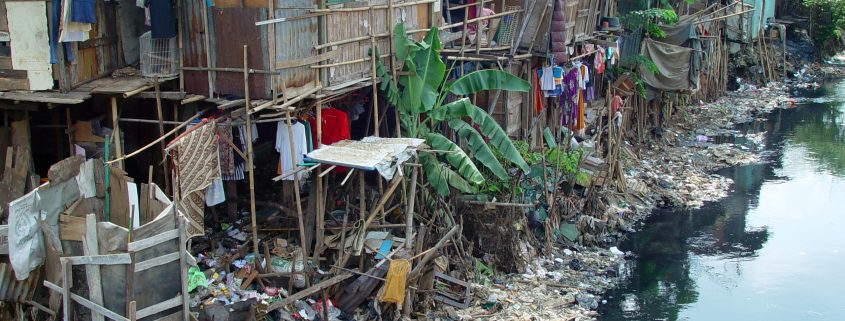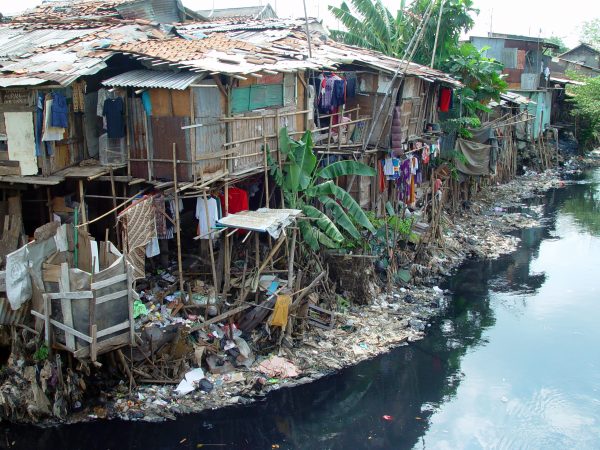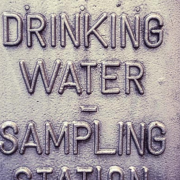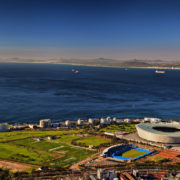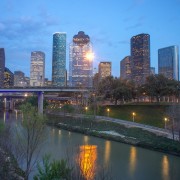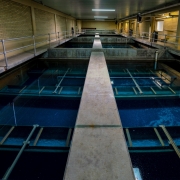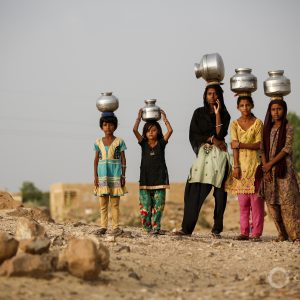Jakarta, the World’s Fastest-Sinking City, Also Faces Rising Sea Levels and River Pollution
Certain parts of the city have sunk 14 feet in recent decades, largely due to illegal well-digging.
Slums built on swamp land near a garbage dump in East Cipinang, Jakarta Indonesia. (Photo by Jonathan McIntosh/Wikimedia Commons)
The Rundown
Jakarta, Indonesia, is sinking faster than any city in the world–so fast, in fact, that certain coastal areas have descended 14 feet in recent years. One cause is Illegal well-digging, which is endemic in Jakarta where only a third of the city’s 10 million residents have access to piped water. The countless wells are draining Jakarta’s aquifers, causing the city to sink. At the same time, the parched aquifers are not being replenished due to the prevalence of concrete and asphalt, which makes water absorption nearly impossible.
Land subsidence isn’t Jakarta’s only problem. Seasonal flooding is common. River pollution is rampant. Rising sea levels pose a growing threat.
The city is scrambling to address its myriad and related water crises. But many ventures have drawn criticism, such as forcibly dismantling illegal settlements along the city’s crowded canals. Another controversial topic is Jakarta’s plan to build a giant seawall, which is intended to hold back the rising sea.
“The government is throwing away access to the sea.” –Ahmad Marthin Hadiwinata, a member of the Indonesia Traditional Fisherfolk Union, in reference to Jakarta’s $40 billion flood prevention plan, known as the National Capital Integrated Coastal Development (NCICD) program. The NCICD involves strengthening the city’s shoreline as well as building a 15-mile outer sea wall. The program has been criticized for its potential impact on fishermen and its inability to address Jakarta’s land subsidence issues.
By The Numbers
40 percent Proportion of Jakarta that lies below sea level, mostly due to the digging of illegal wells.
65 percent Proportion of Jakarta’s residents who rely on groundwater. The city’s piped water system serves only a third of the population.
97 percent Amount of Jakarta that is covered by concrete and asphalt. Minimal amounts of water are absorbed into the earth, leaving the city’s aquifers chronically unreplenished.
96 percent Proportion of Jakarta’s river water that is severely polluted, according to Indonesia’s National Development Planning Board (Bappenas). Thirteen rivers in the city were found to have high levels of biochemical oxygen demand, phosphor and nitrogen.
3 feet Amount that sea levels in the Jakarta area could rise over the coming century, according to local climate researcher Irvan Pulungan.
25,000 Estimated number of fisherman who have been impacted so far by land reclamation initiatives along Jakarta Bay. The projects, including Jakarta’s ambitious seawall, have caused sedimentation, forcing fishermen to go further to find fish.
On The Radar
Jakarta’s prospects depend in large measure on the city’s ability to curb its land subsidence. Jakarta is developing monitoring systems which provide detailed data on the worst subsidence. Equipped with better data, the city hopes to regulate groundwater extraction and learn where alternative water sources are most needed. Even if illegal well-digging is minimized, stopping land subsidence could take 15 to 20 years.
For this reason, many water experts argue that flood prevention programs such as the NCICD are necessary. The project’s first phase, which began in 2014 and focuses on strengthening existing embankments, is about a third of the way complete. Indonesia has also spearheaded a number of sanitation and drinking water projects, although these are progressing more slowly than other infrastructure initiatives. Still, progress is being made–time will tell if it is enough to keep Jakarta from sinking all the way into the sea.
Resources And Further Reading
In context: As Groundwater Withdrawals Increase, Jakarta Sinks (Circle of Blue)
The 11 cities most likely to run out of drinking water – like Cape Town (BBC)
In flood-prone Jakarta, will ‘Giant Sea Wall’ plan sink or swim? (Reuters)
Jakarta Is Sinking So Fast, It Could End Up Underwater (The New York Times)
Jakarta Should Not Turn to Mass Evictions as Part of City Planning for Economic Success (The Independent)
Jakarta’s river water severely polluted: Bappenas (The Jakarta Post)
Sanitation, drinking water projects progress slowly, minister says (The Jakarta Post)
Kayla Ritter is a recent graduate of Michigan State University, where she studied International Relations and Teaching English to Speakers of Other Languages. She is currently based in Manton, Michigan. Kayla enjoys running, writing, and traveling. Contact Kayla Ritter

